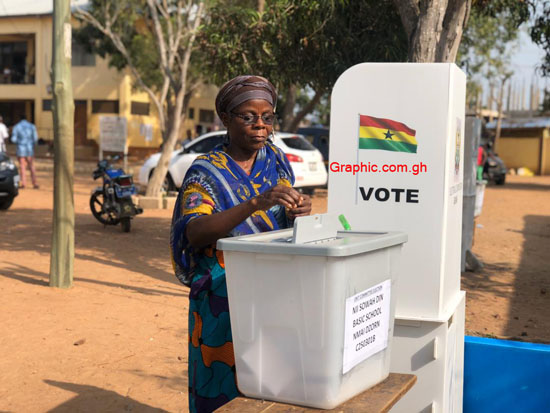
Attitudes about women running for elected office
Back in 2012, I was seated in the waiting area of a private clinic watching television while waiting to be seen by the doctor. While watching, there was a news clip of Adwoa Safo campaigning to be elected Member of Parliament (MP). One of the nurses turned to me and remarked in Twi which I loosely translate here “This is a man’s job. Instead of staying home to take care of her children and her husband she is doing politics.”
That unfortunate remark illustrated one of the many examples of the social cost women face in trying to run for elected office.
The fundamental question
The Afrobarometer Survey has over the years captured Ghanaian attitudes about certain gender norms. Over five rounds (2005, 2012, 2014,2017 and 2022), Ghanaians were asked the extent to which they agreed or disagreed with the following statement - Statement 1: Men make better political leaders than women, and should be elected rather than women. Statement 2: Women should have the same chance of being elected to political office as men.
In 2005, 83 per cent of Ghanaians agreed that women should have the same chance of being elected to political office as men. However, by 2012, that percentage had dropped to 70. Public attitudes would later improve between 2014 and 2022 where those agreeing that women should have the same chance of being elected to political office as men increased to 78 per cent.
The National Commission for Civic Education, in election years, conducts a study called “Matters of Concern to the Ghanaian Voter.” From the information publicly available, the first of the studies was done in 2008. Starting in 2012, the study asked about the willingness of Ghanaians to vote for a female candidate as a MP as well as President.
In 2012, 70 per cent said they were willing to vote for a female candidate as MP. The percentage remained unchanged significantly in the 2016 study (68 per cent) but improved significantly in 2020 with as many as 77 per cent saying they were willing to vote for a female candidate as MP.
The same question was asked about the willingness to vote for a woman as President of Ghana. In 2012, only 50 per cent responded in the affirmative, increasing significantly to 59 per cent in 2016 and further increasing to 66 per cent in 2020.
These statistics prove that overall, Ghanaians generally believe that women should have the same chance of being elected to political office as men. Additionally, they continue to show a willingness to vote for women candidates, although more so as an MP than as President.
When women run for office
So, what happens then when women run for office? In Afrobarometer Round 9, 2022, Ghanaians were asked three specific questions related to that.
Table 1: Ghanaian perceptions of what happens when a woman runs for office|2022|
If a woman in your community runs for elected office, how likely or unlikely is it that the following things may occur?
Very likely Somewhat likely Somewhat unlikely Very unlikely
A.She and her family will gain standing in the community 57% 29% 7% 7%
B.She will be criticised, called names, or harassed by others in the community 15% 27% 25% 33%
C.She will face problems with her family 14% 21% 25% 40%
From the table above, the perception of Ghanaians when it comes to women who run for elected office can be summarised as follows- a) it improves her and her family’s standing in the community; b) six out of 10 (58 per cent) believe it is somewhat/very unlikely she will be criticised, called names, harassed and c) seven out of 10 (65 per cent) believe it is unlikely she will face problems with her family.
The findings look quite promising as most of the people state that it is very unlikely women will be criticised or face problems.
Challenge for political parties
There are still some concerns. From the National Commission for Civic Education survey I referenced, some of the reasons citizens give for why they are unwilling to vote for a woman as an MP or President is because “women in high positions tend to be arrogant, disrespectful. A woman cannot cope with the pressures associated with holding public office, men can do a better job, and a woman cannot take bold decisions”.
Our political parties are the vehicles through which candidates seek elected office and must step up, if we are serious about our desire to see more women participate and get elected to office. Political parties must commit to devising specific ways that will lower the social cost for women who seek elected office.
